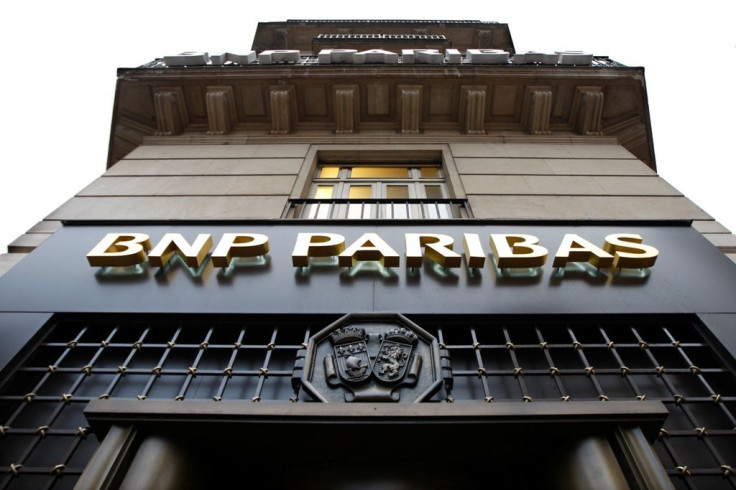BNP Paribas Dollar-Trading Ban Could Really Hurt

For the second time in a month, a foreign bank faces a multibillion-dollar fine to settle possible criminal charges filed by American authorities. But this fine differs from the first one as the terms of the new settlement include a provision that could actually damage the bank's ability to conduct business and attract clients.
French bank BNP Paribas SA (FR:BNP) and American prosecutors are working out the terms of an $8 billion to $9 billion fine for violating U.S. sanctions. The bank is accused of hiding transactions with countries such as Sudan, Iran and Cuba. It’s just the latest in a string of high-profile cases in the past few years, such as last month's $2.6 billion settlement with Credit Suisse, to settle charges of helping U.S. citizens avoid taxes. But in the BNP case, the company stands to feel more pain from a possible ban on U.S. dollar transactions than from the fine itself.
In addition to the fines, the rumored agreement with The New York Department of Financial Services will require the bank to plead guilty to violating the International Emergency Economic Powers Act and put a hold on its ability to make U.S. dollar transactions, according to the Wall Street Journal.
A U.S. ban on dollar transactions is much more devastating than a ban on foreign currency transactions in most other countries. Dollars are used as international currency in many cases, and even when transactions occur in other countries, they’re ultimately cleared in the United States, where they are processed through the Federal Reserve’s Fedwire Funds Service System.
“It is a new form of punishment,” Oliver I. Ireland, a partner at Morrison & Foerster, told the New York Times earlier this month. “It seems to me to be a very uncertain tool to achieve an end.”
The potential of such a ban has had French authorities up in arms for weeks. Earlier this month, authorities pushed back against the possible penalties, saying it could have major repercussions for trans-Atlantic trade.
“If there is a violation of a rule, it is normal to have a penalty, but the penalty must be proportional and reasonable,” French Foreign Minister Laurent Fabius said on June 3, according to the WSJ. “These figures are not reasonable.”
It’s possible that BNP Paribas could contract other banks to do its clearing during the suspension period. This could help them survive the ban, but it could also push some of its current and potential clients toward competitors.
“When your client has to go to a rival bank to get the most basic banking service, even for a few months, you’ll lose them,” Fred Cannon, head of research at Keefe, Bruyette & Woods Inc., told Bloomberg.
“Not all, but some will take their business completely to that rival and not come back.”
As for the actual fine, it’s relatively small, according to Morningstar banking analyst Erin Davis.
“That’s obviously a giant pile of money, but BNP is a giant company, and I think they’re going to be able to absorb it,” she said.
The $8 billion to $9 billion fine represents a little less than a third of the total $30 billion in transactions made with sanctioned countries.
“This fine is meant to be more punitive than other fines have been in the past,” Davis said. “It’s a way for regulators and prosecutors to show that government is taking misconduct more seriously."
In a similar case in 2013, Royal Bank of Scotland (NYSE:RBS) paid $100 million in penalties on $32 million in transactions. A year earlier, Standard Chartered (LON:STAN) paid $667 million on the same amount of illegal transactions.
© Copyright IBTimes 2025. All rights reserved.






















